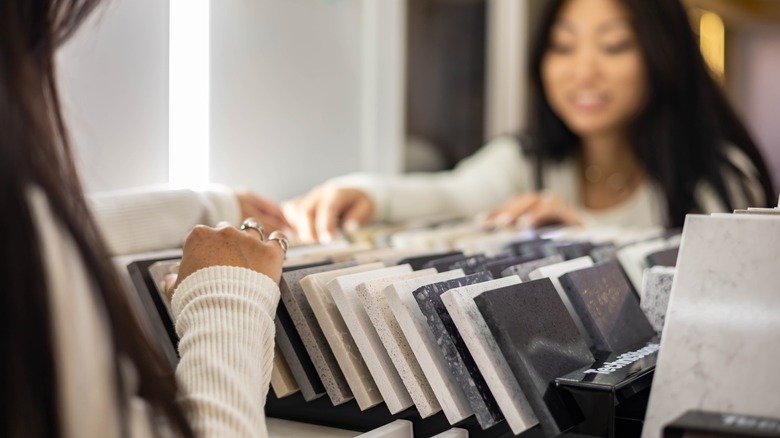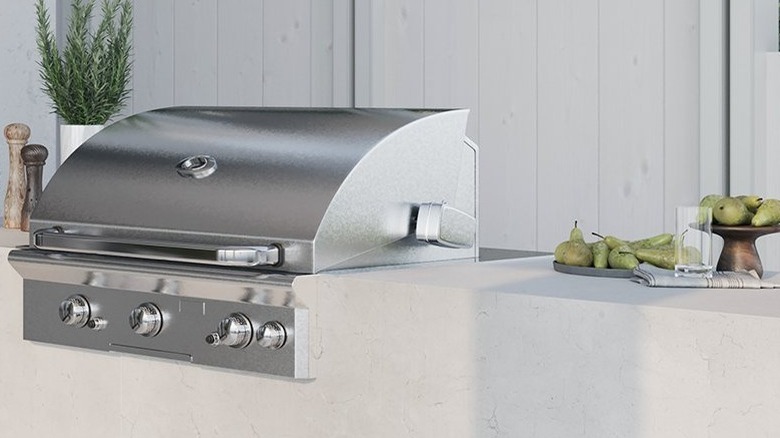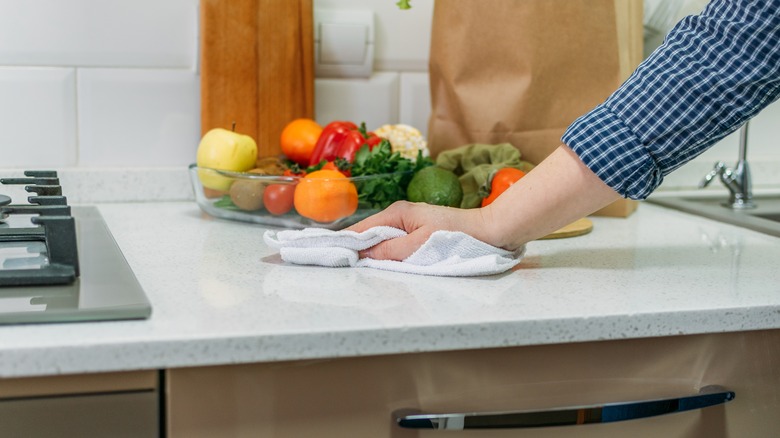Dekton Countertops: What To Know Before Buying And How To Care For Them
If you're considering replacing countertops in your home, you might be overwhelmed by the variety of choices available today. From thrifty materials like laminates to natural stone surfaces like quartz or marble, homeowners have many options, price points, and styles to pick from. However, when searching for the perfect addition to your kitchen or bathroom, you may also come across materials you've never even heard of. One such lesser-known option that is making waves in the world of interior design is Dekton.
Dekton is a relative newcomer in countertops and is made from a mix of many natural minerals. Due to its relatively affordable price point, durable constitution, and sleek natural stone appearance, it's quickly become a popular alternative to well-known surfaces like marble and granite. However, it's most often compared to quartz due to its attractive appearance and similar price point. Thankfully though, Dekton doesn't share quartz's weaknesses when exposed to heat and certain abrasive cleaners. Here's what you need to know about the material before installing it in your home.
Pros and cons
Durability is of vital concern when shopping for countertops. Dekton is known for being able to withstand staining, discoloration, scratches, and heat damage, making it a solid choice for both indoor and outdoor kitchens. In addition, despite the demanding energy requirements of manufacturing Dekton, the material isn't as costly as some may expect. Anticipate a price point of around $60 to $120 per square foot; quartz is slightly more pricey at $55 to $195 for a square foot slab.
One caveat to Dekton's durability is that it won't survive a forceful impact, like something heavy being thrown on it from afar. In such cases, it could be cracked or dented. Another drawback is that, unlike granite, it isn't advisable to install a Dekton countertop as a DIY project. This is because, despite the material's durability in the kitchen, it can be a very delicate material to install. So naturally, this will add to the overall cost when selecting Dekton for your home.
How to care for Dekton
A countertop's durability won't mean much if its surface can be quickly marred by accidentally using your go-to cleaner to address leftover food residue or spilled coffee. Thankfully, Dekton can be cleaned with everyday cleaners or warm water and soap for most messes, and you can use stronger cleaners for more difficult stains and spills. Unlike cleaning quartz surfaces, this means you can use mild acidic cleaners such as vinegar without creating a cloudy discoloration on the polished surface.
For most stains, rub some neutral soap in a circular motion with a nonabrasive cloth and then dry the surface with a paper towel. You may also let the soapy water sit for several minutes for better results. Are you dealing with a more difficult stain like grease, rust, or ink? Use vinegar, detergent, grease remover, or an anti-rust agent, and wipe clean with a microfiber cloth (via Cosentino). That being said, unlike marble and granite, Dekton is non-porous, so you won't have to worry about spills quickly seeping through the surface.


